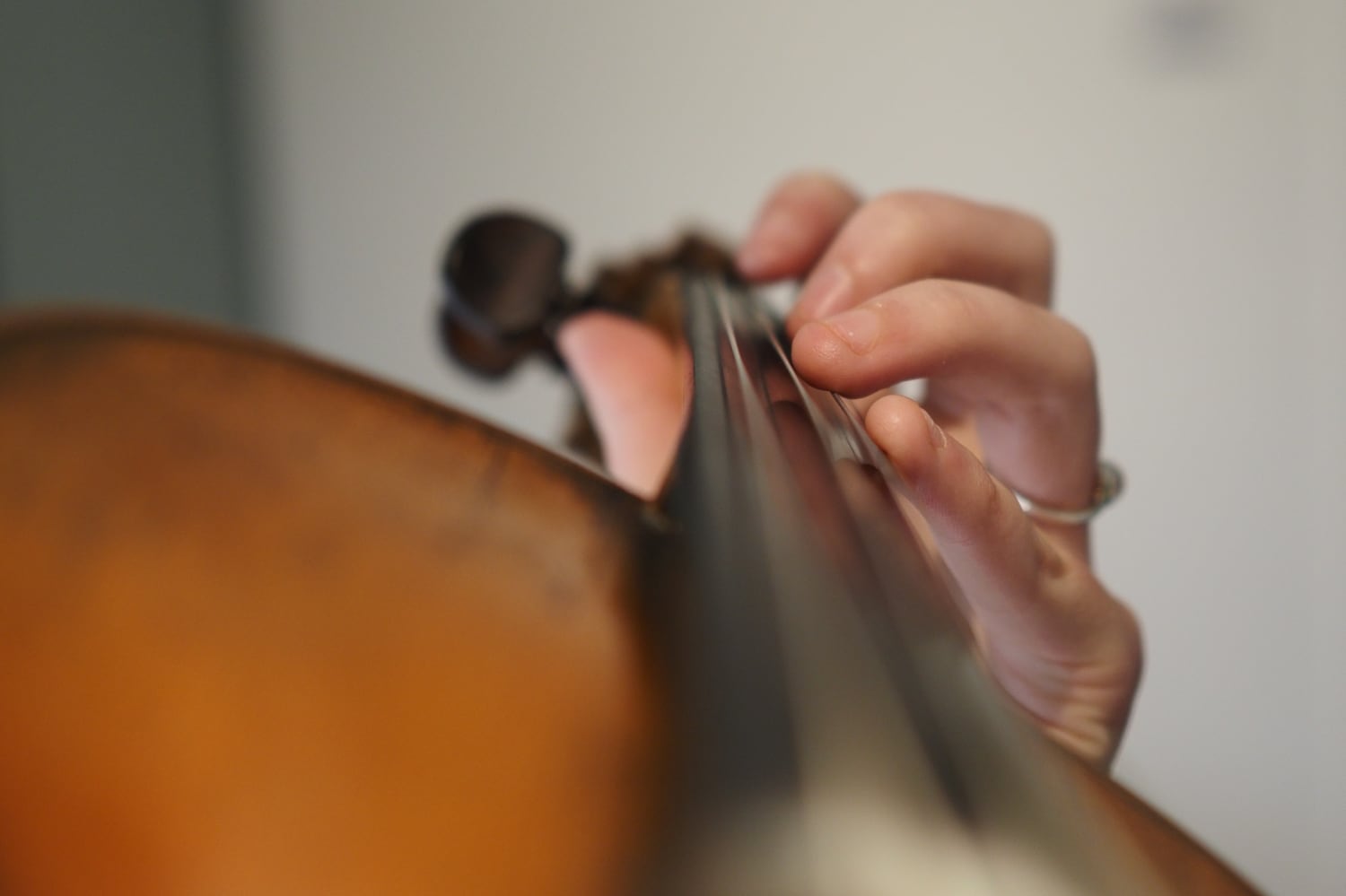When she plays the violin
Sunday, January 1, 2023 ・ Blog

The fingers of her left hand shift between positions on the violin’s fingerboard, moving with miraculous precision, stopping strings, fast and slow, and rocking them for vibrato. Trained over countless hours of practice and guided by her innate ability, my daughter’s fingers seem to have an unconscious life of their own.
And I watch, not quite grasping the relationship between her actions and the sound she’s making, and awed by her mastery of something far beyond anything I’ve taught her or know. 14 years from baby to near-adult; eight years from first picking up a violin. I know my daughter profoundly well in almost every other way, but she becomes someone new to me when she plays. I hardly recognise her, and it’s wondrous.
My daughter is a very good violinist. She’s played in the National Children’s Orchestra for several years, and the English Schools Orchestra, too. She’s won competitions, and generally excels as a player. She’s also a creature of chaos, tending to live by instinct and impulse rather than intention, flitting between brief interests and rarely settling on any. Her room is usually filled with drifts of things relating to these interests, collecting like flotsam on her desk and filling drawers. But the violin stuck fast, perhaps because she has an immediate and natural ability.
I can recognise some of that ability as she plays. Her bow hand moves with rhythmic sweeps that have a more obvious relationship with the sound she’s making than the fingers that hold the strings, and yet I still stare. Her fingers hold the bow in a seemingly weightless grip while her wrist articulates to keep it straight as she pulses it back and forth. The bow looks almost languid when in mid-stroke, yet when it reaches the end she performs a subtle snap with her wrist to preserve a note while reversing the stroke in the opposite direction.
It’s transfixing and beautiful, though she says her bow-hold is far from proper. It’s the cause of much ire with her teacher and, by extension, us, because she falls back into her bad old bow-hold easily, maybe a reflection of her instinctive nature. But I can’t tell that it’s bad. Her skills have long exceeded my ability to identify their rough edges.
I also don’t quite understand my daughter’s relationship with the violin, nor the nature of her orbit around its regimented world of teachers, orchestras, grades, schools. I know she is competitive and wants to prove herself, and I’m familiar with her quiet but fierce focus when she’s performing in a competition. Familiar with her self-flagellating self-standards, too. But what does she feel when she is playing? Does she lose herself in the music? How does she appreciate the arrays of notes and timings of the music itself? What does she experience? She doesn’t talk much about these things.
Her posture: straight-backed, in contrast to her unrelenting casualness when she’s not playing. Her expression: composed, tight, internalised. Over the past year she’s grown more confident on stage but – of course – she’s not quite herself, or at least, not the her I know. And yet, there she is on the stage of a competition that she will go on to win, conjuring countless notes from a place inside herself that I do not know. And then, just tonight, she is playing with the West of England Youth Orchestra, 17 pieces intensively rehearsed over the Christmas holiday. And I’m so proud of her.